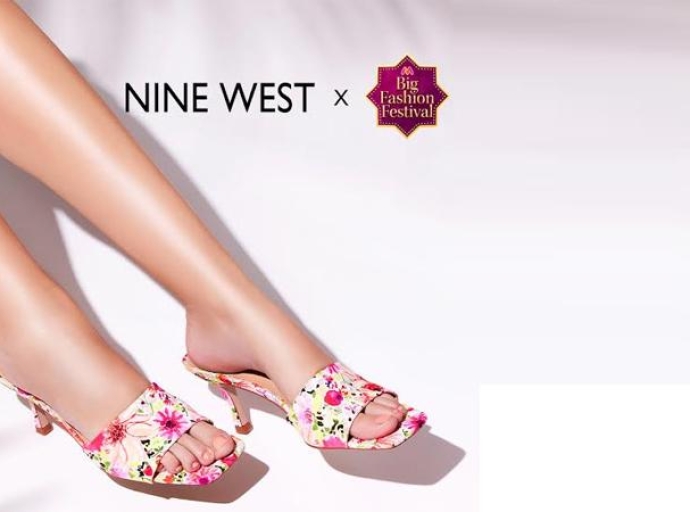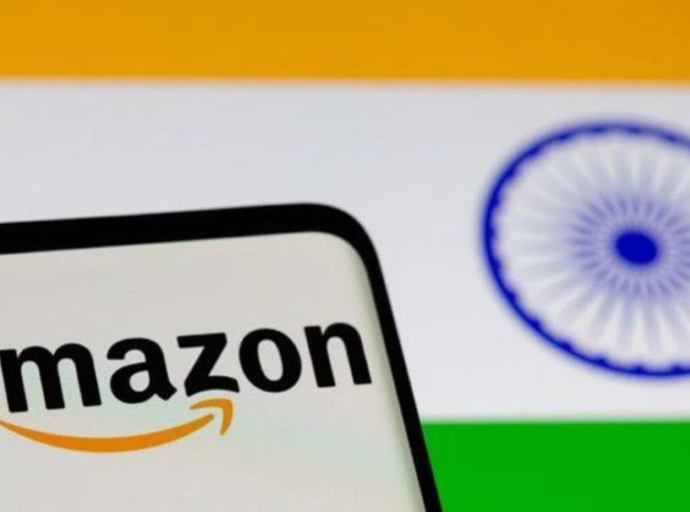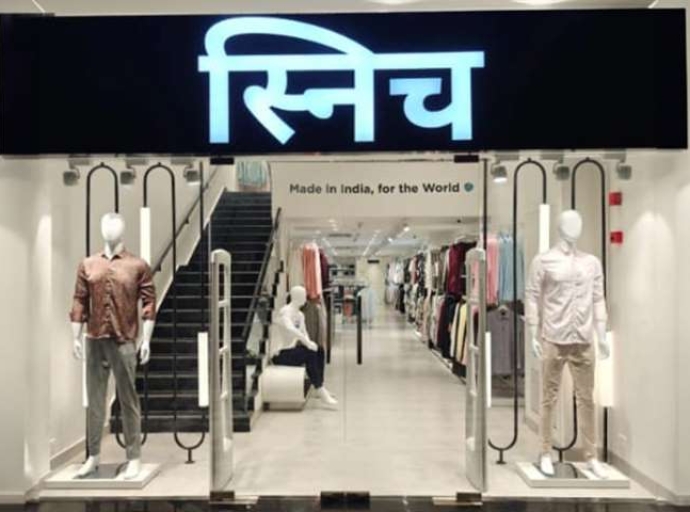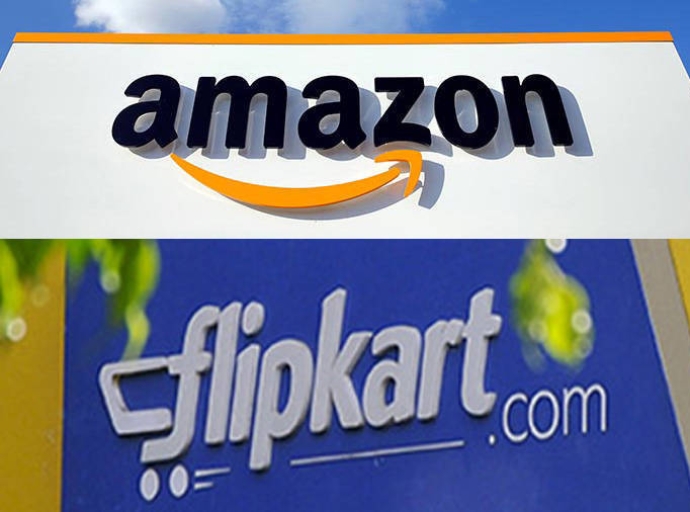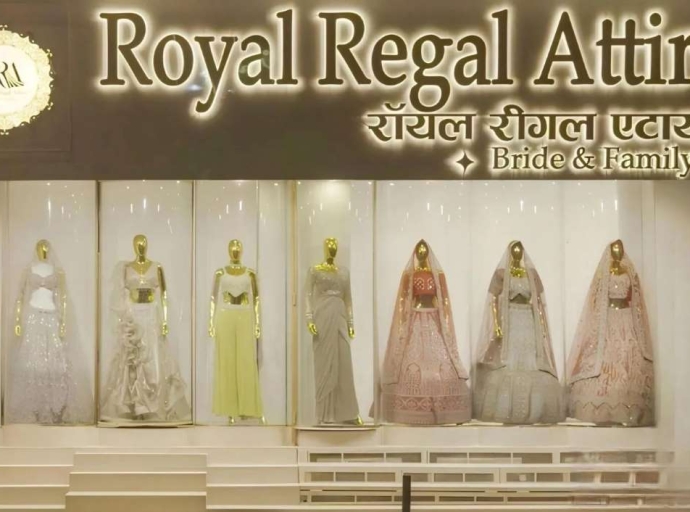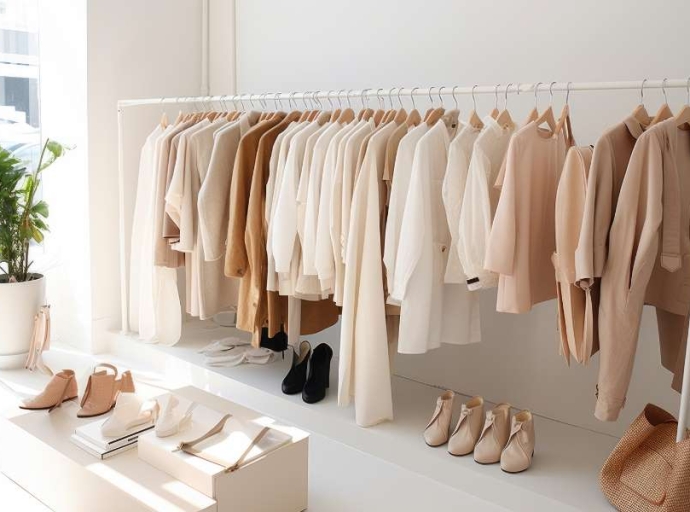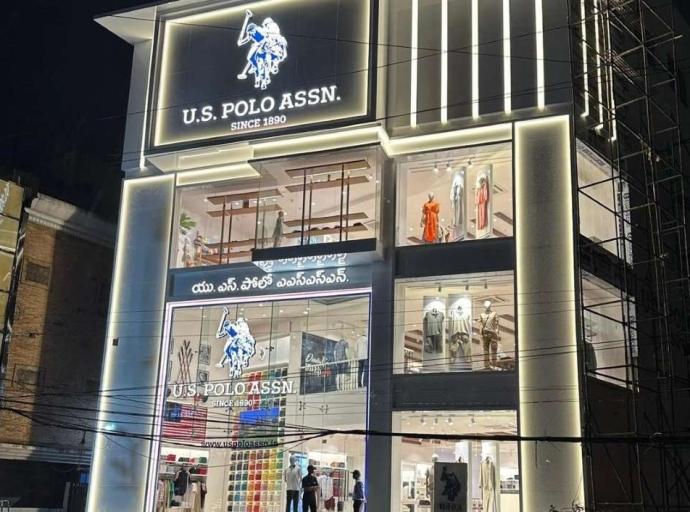Global footwear and accessories brand Nine West by Bata has launched a collection of over 100 new footwear styles for the festive season on Flipkart’s fashion arm Myntra.
Crafted as a part of a versatile wardrobe for the modern women, this collection blends elegance with practicality for the fast-paced urban lifestyle, says Sharad Takhur, Vice President and Head-E-commerce, Bata India. Featuring footwear styles including stilettos, pumps, sling-backs, mules, sandals, flats, and slides with both casual and formal options available, it empowers women to navigate their day with both confidence and style. The collection also elevates the customers’ shopping experience, making fashion accessible for every occasion.”
The collaboration between Nine West by Bata and Myntra strengthens the brand’s omni-channel strategy in India. Available exclusively on Myntra, the new collection aims to use the platform’s pan-India reach to expand its customer base. A retailer of Nine West footwear in India, Bata India has a network of over 1,900 company owned and franchise stores and sells close to 50 million pairs of shoes annually.
All Stories
Expanding its retail presence in the market, prominent menswear brand under Aditya Birla Fashion and Retail, Peter England has launched third store in Kathmandu, Nepal.
This strategic move highlights the brand's commitment to offer premium lifestyle products in emerging markets. Located in Kumaripati, the new store spans 750 sq ft and was inaugurated by renowned Nepalese actor Ayushman Joshi.
Founded in 1889, Peter England has grown to be India’s largest menswear brand. The Kathmandu store features a wide range of men’s fashion, including shirts, trousers, t-shirts, suits, and accessories like belts and ties. It also showcases the brand’s latest Yacht Club collection, which blends modern style with the versatility of both formal and casual wear.
Anil S Kumar, Chief Operating Officer, states, launched in collaboration in with Pacific Business, the brand’s store in Kathmandu aims to offer customers with an enhanced shopping experience.
Bipin Kumar Agarwal, Director, Pacific Business, adds, strengthening the company’s partnership with Peter England, the new store offers fashionable, affordable menswear tailored to the preferences of local customers.
In the centre of India's ever growing e-commerce landscape, Amazon India has observed a silent transformative trend: the rise of premiumization in Indian fashion and apparel retail. An in-depth look at their own sales data reveals evolving consumer preferences and regional nuances. The study highlights the rise of premium brands and growing appetite for high-quality fashion across states. “The premiumization trend in India is undeniable. Consumers are increasingly seeking high-quality, branded products, and are willing to pay a premium for them," says Amit Agarwal, SVP and Country Head, Amazon India.
Growing demand for premium fashion
Amazon India's data reveals a growing appetite for premium fashion and apparel brands among Indian consumers. The platform's premium segment has witnessed a significant sales increase, indicating a shift in consumer preferences towards higher-priced, quality-focused brands. And the pattern of sale changes across states. While major metros like Delhi, Mumbai, and Bangalore remain big contributors to overall fashion and apparel sales accounting for over 60 per cent of fashion and apparel sales on Amazon India.
Tier-II, III cities are showing rapid growth almost contributing nearly 40 per cent to overall fashion sales, driven by increased internet penetration and rising disposable incomes. Ethnic wear remains a popular choice across India, accounting for over 40 per cent of overall fashion and apparel sales on Amazon India. Manish Tiwary, Vice President, Amazon India points out, "We are witnessing a remarkable shift in the fashion landscape in India, with a growing preference for premium brands and a surge in demand from diverse states across the country. Amazon India is committed to providing a platform for both established and emerging brands to reach a wide customer base."
States like Maharashtra, Karnataka, and Tamil Nadu have emerged as fashion-forward states, displaying a higher inclination towards premium brands and trendy styles. These states also exhibit a preference for ethnic wear, reflecting the strong cultural influences in these regions. What’s more, over 70 per cent of fashion purchases on Amazon India are made through mobile devices, reflecting the country's digital-savvy consumer base.
Growth potential in smaller cities
There study points out, there has been a rise in homegrown luxury. Indian luxury brands like Sabyasachi and Anita Dongre have witnessed exponential growth on Amazon India, catering to the increasing demand for premium ethnic wear. At the same time, luxury brands like Louis Vuitton, Gucci, and Prada have witnessed significant success on Amazon India, with a growing number of Indian consumers opting for these high-end brands.
Cities like Jaipur and Lucknow are witnessing a surge in fashion consciousness, with consumers actively seeking out the latest trends and premium brands. And fashion influencers are playing a pivotal role in driving sales, particularly among younger consumers, who look to them for style inspiration and recommendations.
Amazon India's findings highlight the evolving fashion and apparel landscape in India. The growing appetite for premium brands and the rapid growth of Tier-II, III cities present significant opportunities for both domestic and international brands. As India's e-commerce market continues to grow, fashion and apparel brands need to adapt their strategies to cater to the changing consumer preferences and regional dynamics.
Banarasi couture brand Warp 'n Weft has joined forces with fashion label World of Asra to create 'Aadhyavi,' a contemporary women's occasion wear collection, a modern take on traditional Indian textiles.
The collection features youthful mini dresses, tailored trench coats, and intricate Banarasi patterns.
A campaign featuring seven inspiring women highlights the collection's versatility and style. 'Aadhyavi' is now available at Warp 'n Weft and World of Asra stores.
In a complaint this week to the Department for Promotion of Industry and Internal Trade (DPIIT), Madras High Court lawyer K Narasimhan has accused Flipkart of influencing prices for select sellers and funding discounts, creating an uneven playing field in the e-commerce marketplace.
Narasimhan claims Flipkart has been offering selective waivers at the product level, directly impacting the pricing of certain sellers. This, he argues, creates a "skewed and non-competitive environment" that stifles competition and hurts the broader seller ecosystem.
Allegations among festive sale
The allegations have surfaced amidst the ongoing annual festive season sale events organized by major e-commerce companies like Flipkart, Amazon, and Myntra. The Confederation of All India Traders (CAIT) has also called for the suspension of these sales, claiming that they further harm domestic traders through the continued use of anti-competitive practices.
Rules and Regulations Allegedly Being Violated
The primary rule that Flipkart is accused of violating is the prohibition on e-commerce companies interfering with or influencing the price of products listed on their platforms. This is enshrined in the Consumer Protection (E-Commerce) Rules, 2020, which were enacted to ensure fair trade practices and protect the interests of consumers and sellers.
The alleged rule violations
Consumer Protection (E-commerce) Rules, 2020: The rules prohibit e-commerce entities from directly or indirectly influencing the sale price of goods or services offered on their platforms.
Competition Act, 2002: The Act prohibits anti-competitive agreements and abuse of dominant market position, which could include predatory pricing or discriminatory practices.
Foreign Direct Investment (FDI) Policy: The policy for e-commerce marketplace entities restricts them from influencing the selling price of goods and services and mandates a level playing field for all sellers.
E-commerce companies' defence
Flipkart has not yet responded to the allegations. However, e-commerce companies typically argue that discounts and promotional offers are essential for attracting customers and driving sales, especially during the festive season. They also claim that these practices benefit sellers by increasing their visibility and reach.
If found guilty of violating the Consumer Protection (E-Commerce) Rules, 2020, Flipkart could face penalties under the Consumer Protection Act; penalties may include fines and imprisonment for the individuals responsible.
This is not the first time that Indian e-commerce majors have faced scrutiny for their business practices. In the past, both Flipkart and Amazon have been investigated by the Competition Commission of India (CCI) for alleged anti-competitive behavior.
The allegations against Flipkart have once again brought to the fore the concerns about the dominance of large e-commerce companies in the Indian market and their impact on small and medium-sized businesses. The government and regulatory authorities are likely to face increasing pressure to take action to ensure a level playing field for all players in the e-commerce ecosystem.
Apparel brand Snitch has celebrated its 25th store opening in Dehradun, just eight months after launching its first outlet in Bengaluru.
The new store, located on Rajpur Road, spans 3,200 square feet and caters to Gen Z men with a modern, streetwear-inspired aesthetic.
Snitch, which began as a direct-to-consumer label in 2020, has rapidly expanded its physical presence across India.
With plans to continue opening stores in cities like Delhi, Madhya Pradesh, Bhubaneswar, and Rajasthan, the brand aims to reach a broader audience and achieve its targeted gross merchandise value of Rs 600 crore.
Virgio, India’s leading sustainable fashion brand, has launched its first offline retail presence through a partnership with Broadway, a new-age multi-brand retail outlet. This collaboration brings Virgio’s eco-conscious collections to Ambience Mall, Vasant Kunj, Delhi, marking a major milestone for the brand.
Virgio’s presence at Broadway offers a unique shopping experience, combining style and sustainability. Customers can explore a wide selection of garments made from upcycled and eco-friendly materials, blending fashion with environmental responsibility. The store also features tech-enhanced garments, offering a seamless fusion of fashion and technology.
Broadway revolutionizes retail by merging physical and digital commerce, creating an immersive environment for both brands and consumers. It includes creator studios, consultation rooms, and sampling stations, designed to enhance the overall shopping experience.
The three-day launch event featured prominent interactions with industry leaders, including Rana Daggubati, part of Broadway’s founding team. Virgio’s community members were invited to engage with the brand through personalized shopping experiences, rewards, and styling consultations.
Amar Nagaram, Founder & CEO of Virgio, expressed excitement about the partnership, highlighting the brand’s mission to make sustainable fashion more accessible. Broadway Co-Founder Vivek Biyani emphasized their shared vision of promoting eco-conscious, homegrown brands.
Virgio remains committed to reducing textile waste and embracing circular economy principles, offering customers sustainable and innovative fashion choices.
Confederation of All India Traders (CAIT) has urged the government to suspend the 'festive sales' events of Amazon and Flipkart, as a Madras Court Lawyear K Narasimhan has accused Flipkart of offering discounts at product level for select sellers.
The accusation was made in a letter sent by Narasimhan to Amardeep Singh Bhalla, Secretary, Department for Promotion of Industry and Internal Trade (DPIIT).
Narasimhan alleged that seller listings are being automatically opted into waiver-driven offers without their explicit consent. As per rules, e-commerce companies are barred from interfering with or influencing the price of products listed on their platform.
Demanding action against the company, Narsimhan said, the current practice of Flipkart runs contrary to the principles of fair trade and such manipulations severely undermine the level playing field in the e-commerce space, stifling competition and hurting the broader seller ecosystem.
Royal Regal Attire has launched its first retail store in Mumbai, offering a luxurious collection of bridal and occasion wear.
The brand blends traditional charm with contemporary design, featuring intricately crafted lehengas, sarees, suits, gowns, shararas, and gararas. Each piece showcases exceptional craftsmanship, ensuring an elegant, sophisticated look for weddings and special events.
The new store is set to become a top destination for those seeking timeless elegance in Mumbai’s fashion scene.
As the festive season approaches, major e-commerce players like Flipkart and Amazon, along with direct-to-consumer brands, are preparing to tighten their return policies. This move aims to maximize profits and minimize logistical challenges during a period known for a surge in returns.
Experts predict that product returns for categories like fashion, accessories, home decor, and kidswear could be more difficult this festive season. Companies are looking to eliminate the costs associated with reverse logistics, staffing, and packaging, which can significantly impact margins.
High returns during festive season
As per Return Prime, a returns and exchange optimization platform’s estimates product returns can be as high as 30 per cent during the festive season, which typically sees a spike in e-commerce sales. And estimates suggest product returns could cost Indian e-commerce companies a almost $20-30 billion in revenue by 2025. The problem is further compounded by the fact that the rate of returns doubled during the pandemic, despite a 38 per cent growth in e-commerce sales.
What’s more fashion category sees the highest number of returns, followed by groceries and personal care. Impulsive buying driven by attractive festive deals often leads to buyer's remorse and subsequent returns. The cost of reverse logistics, which includes everything from product pickup and shipping to quality checks and refunds, can significantly impact profit margins. Industry experts estimate that returns can account for 10-12 peer cent of the entire product cost, leaving brands with slim earnings.
Steps to discourage returns
To counter returns, companies are reportedly considering a range of measures, including shorter return windows, imposing fees on frequent returners, restricting refunds to store credits, and limiting cash-on-delivery options. While e-commerce companies are keen to curb returns, they are treading cautiously to avoid alienating customers. Returns and replacements remain key drivers of online sales, with many consumers prioritizing the option to return products when shopping online. Any drastic policy changes could negatively impact sales, as eliminating returns entirely could lead to a 50 per cent drop in gross merchandise value (GMV).
E-commerce companies are exploring various tactics to reduce returns:
• Shortening the return window
• Charging a return fee for frequent returners
• Offering only store credit instead of refunds
• Disallowing payments at the time of delivery
Some sellers may also choose to be lenient with loyal customers while restricting return options for others. Platforms like Nykaa and Myntra now charge customers a platform fee to offset potential return expenses. However, the effectiveness of such measures in balancing customer satisfaction with profitability remains to be seen.
Overall, the festive season is likely to witness a subtle tightening of return policies as e-commerce companies seek to protect their margins in the face of increasing return rates. While the industry grapples with this challenge, customers can expect a more cautious approach to returns and exchanges in the coming months.
With the value fashion segment gaining momentum, the fashion retail sector in India is expected to witness a demand recovery with revenues rising by 15 per cent in FY2025, as per ICRA.
After nearly two years of slowdown, the value fashion segment in India is showing signs of recovery with average sales per sq ft surpassing pre-COVID levels for the first time in Q1 FY2025. This resurgence is marked by increased activity, as large corporations either enter the market or expand their presence aggressively.
In contrast, average sales per sq ft in the premium fashion segment declined by 3 per cent in FY2024 and Q1 FY2025, while the value segment thrived, surpassing pre-pandemic figures.
Revenues of Trent Retail, operator of the value fashion brand Zudio, rose by 56 per cent during Q1 FY25, along with a substantial profit rise of 126.3 per cent. Zudio also opened 203 new stores across 46 new cities, bringing its total to 545 locations.
Zudio is now a formidable competitor to Landmark Group’s Max. In response to market trends, Shoppers Stop has launched its new value format, InTune, in the mass premium segment, planning to open 60 new stores in FY25. Meanwhile, Reliance Retail’s value fashion brand Yousta is negotiating with British retailer Primark to potentially launch in India.
Arvind Fashions Limited (AFL) aims to expand the retail presence of its flagship brand, US Polo Assn, in India. The company plans to tap into growing casualwear demand by focusing on categories like womenswear, footwear, and innerwear, expecting these segments to drive growth. US Polo Assn contributed nearly Rs 2,000 crore to AFL’s Rs 4,259 crore revenue in the last fiscal year, and the company targets scaling it to Rs 5,000 crore.
AFL will increase the brand's presence both online and through brick-and-mortar stores, adopting an omni-channel strategy. Marketing efforts, including collaborations with polo player Maharaja Sawai Padmanabh Singh (Pacho) and previous partnerships with celebrities like Arjun Rampal and Milind Soman, will drive brand visibility.
The brand’s focus also includes expanding adjacent categories, which currently represent a Rs 600 crore business. The company plans to enhance product quality, store experiences, and digital presence. Online sales account for 20-25 per cent of US Polo Assn’s business, and AFL continues to invest in omnichannel integration to provide a seamless shopping experience.
Japanese fashion retailer Uniqlo has introduced the UTme! India Art Project to showcase designs from emerging Indian artists. This marks the first time Uniqlo has collaborated with Indian artists to create unique designs for their UTme! T-shirts and tote bags. The exclusive collection will be available at Uniqlo’s Ambience Mall Vasant Kunj store in New Delhi
Collaborating with talented local artists on this collection helps the retailer further its commitment to the Indian community and celebrate its diversity, says Nidhi Rastogi, Marketing Director, Uniqlo India.
UTme! offers customers an opportunity to design their own Uniqlo T-shirts by selecting from a range of stickers available at the UTme! Machine. The designs are printed on-site, allowing customers to personalise their T-shirts and tote bags in just 20 minutes. Additionally, the sotre also sells pre-printed T-shirts featuring the new designs.
Uniqlo entered the Indian market in September 2019, opening a flagship store in New Delhi's Ambience Mall, Vasant Kunj. It now operates eight stores in Delhi NCR, two in Mumbai, and one each in Chandigarh, Lucknow, and Zirakpur. The brand plans to open six to eight more stores in Mumbai and Pune over the next two years and is negotiating with several major malls in these cities.

